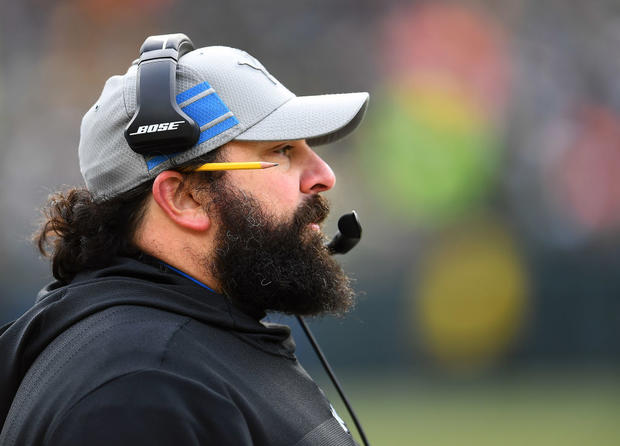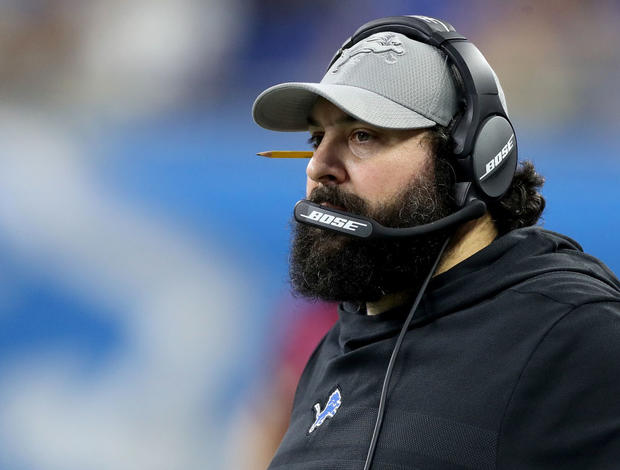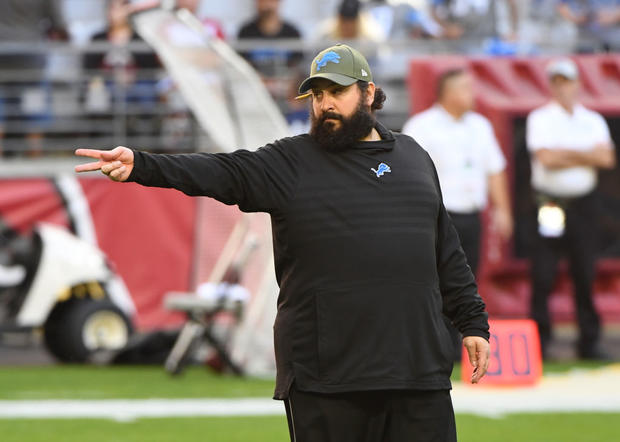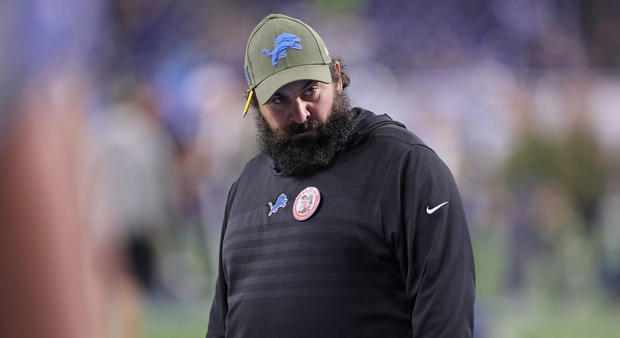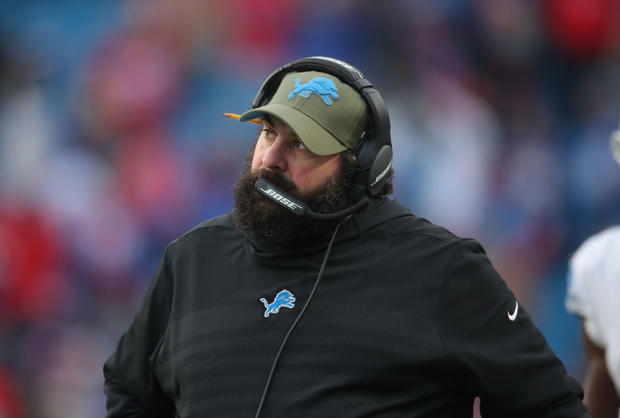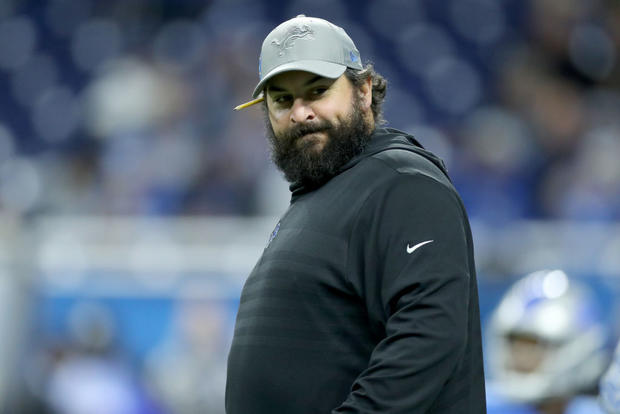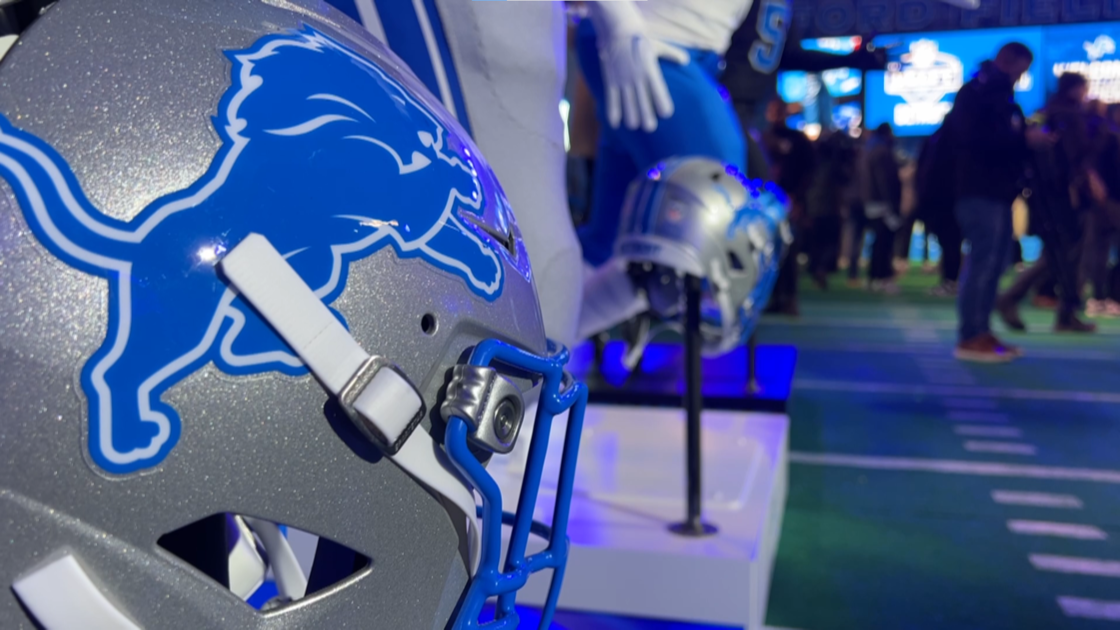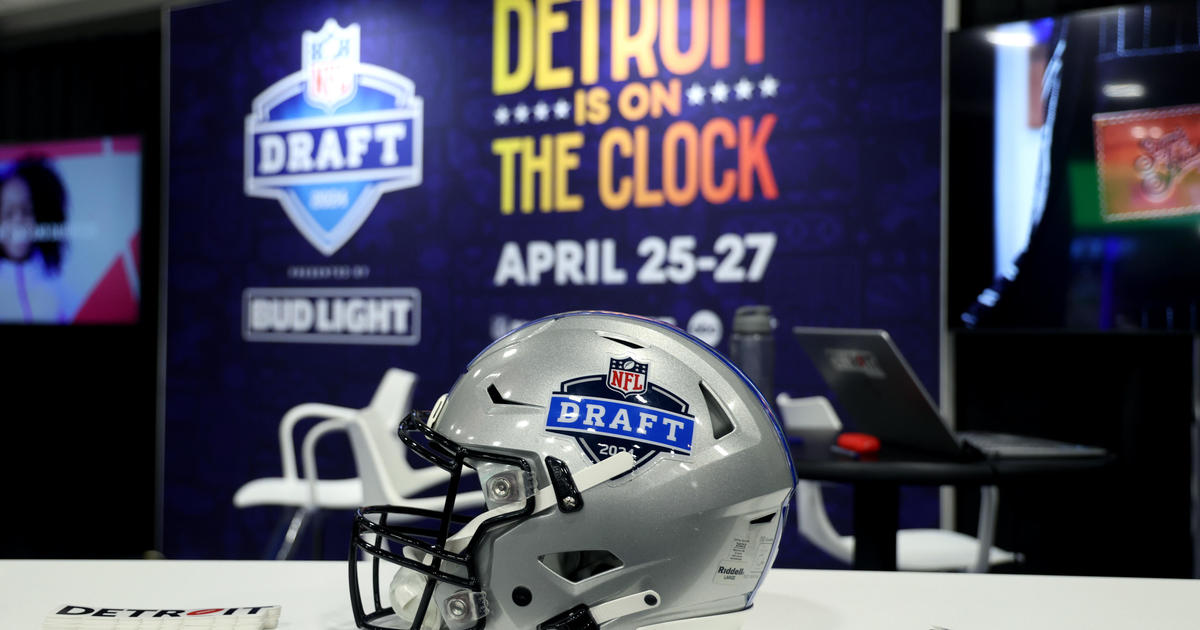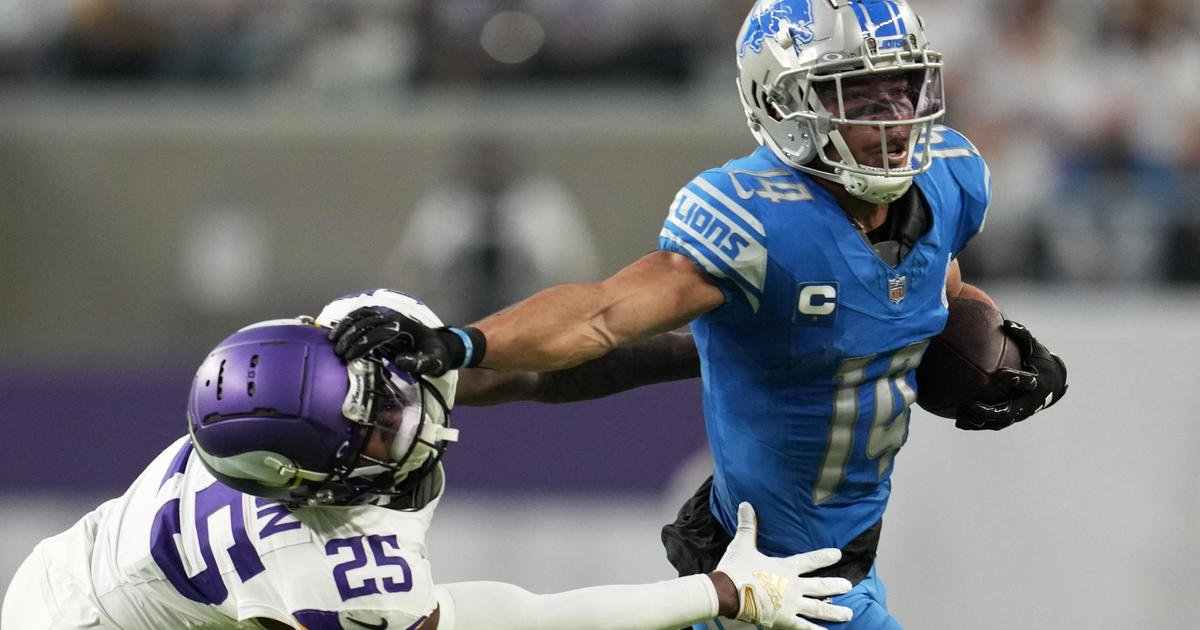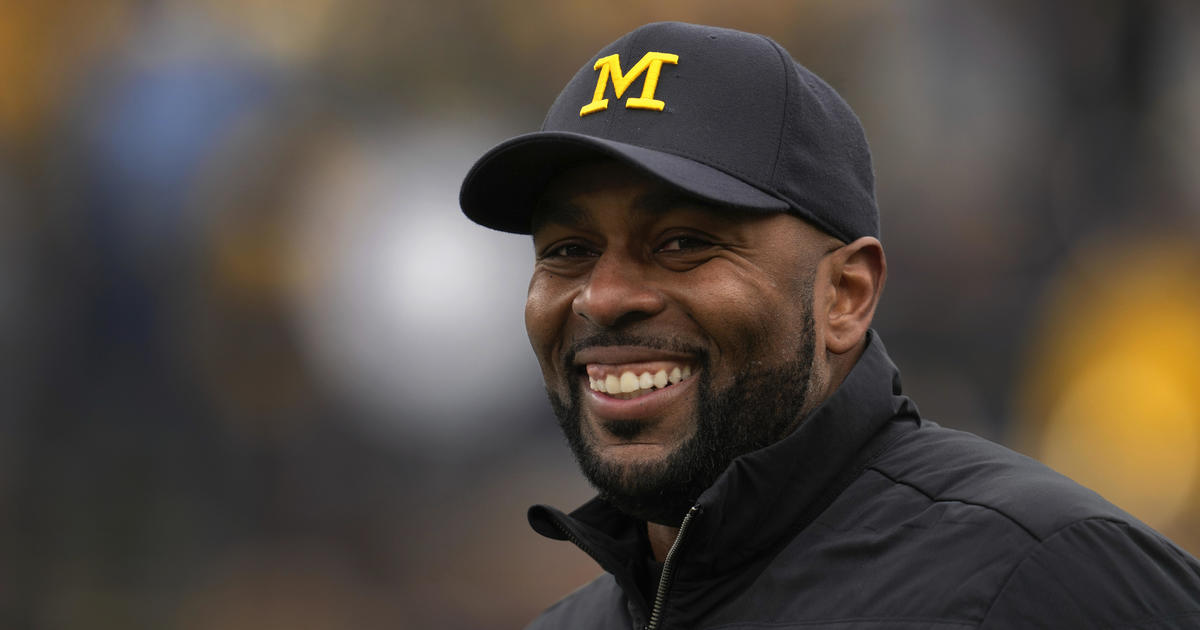Lions Head Coach Matt Patricia Talks Before OTA's
Opening Statement: "The second week here of OTAs – Organized Team Activities. Two on-the-field sort of practice OTAs scheduled this week. When we're not in an OTA day, we actually revert to a Phase Two day. So, we get four days of work this week – which is great. The Phase Two days are good because we can get an opportunity to catch up on film and spend time reviewing some of the different looks that we're seeing, then get ahead on the installations. Last week, did a lot of work in the red area. Started off the week with three days there of practice, this week we're starting on early-down situations. So, you'll see some of that out on the practice field – second day in a row of that. Hopefully we get some improvement on that aspect of it today. We're just building it as we go through. With the four weeks of OTAs, we build different situations of the game as we go and just try to get as much installation and learning taught as possible before we get to training camp. So, trying to maximize all the time we can.
"As far as today with practice, we're going to try to go outside. I know it's raining out – I haven't really seen it yet. We do have new fields out there, so I don't really feel like tearing them up. But they've actually done a great job of holding up with the rain. Good opportunity for us to work on some ball-handling, some things in the wet weather that you never know when they're going to come up, so you take advantage of those opportunities when you can. But just be ready to transition because if we have to go inside, we'll go inside in the middle of it. Like I said, I don't want to tear up the fields. One of the things about setups and waiting until the last minute, which is what we're doing right now to see if we can get out there, as we have a lot of equipment that you'll see for the individual periods we use, and a lot of those periods are done on the edges of the field. So, I feel OK about going out there and hitting sleds and doing stuff like that, not trying to get the tractors out and move all that stuff inside. We might be a little bit inside, a little bit outside. We'll just see how it goes from that aspect of it. We'll take advantage of everything we can. Obviously, if we do get a chance to go out there from a weather standpoint – it's always great to get that work from a technique and fundamental. Grinding through – you know, just having a good couple (of) weeks. Excited, the guys that are here are working awesome, just trying to learn, trying to get better – we're all trying to get better and improve every single day. It's good – working on a lot of fundamentals. It's a great opportunity this time of year to get that done because we'll have extra time to work on that stuff if we're not game-planning for a specific team, and we're not spending time on scouting reports on anyone in particular. The fundamental technique work for us is invaluable right now which is great. OK – questions?"
On how much coaches spend on the Week 1 opponent during this time period: "They say general rule is first four games. You try to spend some time on what those teams are, maybe what they've been in the past, what the changes might be. Looking into next year, you try to incorporate certain things that you can into your teaching so that you're educating all players on what we're installing, but also throwing in some tidbits or advice or something that at some point you're going to use at Week 1 or Week 2, based on who you're playing that it won't be the first time they hear it. It might be a particular player, might be a particular down-and-distance, might be a situation, might be something that we know is a little bit different or new. It might be an install that we know at some point – let's say in the first four weeks – might help us, but we're putting it in now. We might now circle back to it until maybe a day in training camp. Then that week when we work on it three or four days in a row to get ready for that team. But again, the more we can get them used to the verbiage, the terminology, the adjustments, whatever it might be for that particular case, we'll try to sneak it in. Maybe sometimes they don't even know what it's for – they are just learning the process, and we have a plan for it in the end."
On if he is watching college film to prepare for Week 1 at Arizona: "I know Kliff (Kingsbury) pretty well. We're going to watch as much film as possible and see what happens. You try to do your due diligence on all of it in the offseason. The tricky part about the offseason is they're also doing an offseason where they can change, make adjustments. He's, right now, trying to go through and fit his personnel into what he does. As a coach, from our perspective, we will always work on the early part of the season and what's important, preseason and things like that. For us, our biggest focus with the players is really just day-by-day trying to get them better to improve to understand, us as coaches trying to get better as coaches and utilizing our time in the meeting room and on the field better. So, that's where our focus is with the players. Behind the scenes as coaches, we always are kind of working in multiple different directions form that facet, sure."
On what he looks for from the rookies: "It's all different depending on the rookies when they come in and how well they start to pick up things at the NFL level. It's a different game, it's a different process. That's why so many great NFL players come from schools you've never heard of, or maybe didn't even play college football and they come in and have some success or whatever the case may be. It's just a drastically different game. For us, we're just trying to look for them to pick up as much as possible from what we're trying to do, understand how to become a professional. A lot of it for them coming out of college, is learning how to take care of their bodies, the demand of what the day looks like from that aspect of it – scheduling – and what we're trying to do. There's so much they have to learn on top of just the playbook and then the fundamentals and the techniques and the vernacular of what we're calling things. Constant improvement, being consistent – those would be the biggest things we're trying to look for to see if they are getting better. It might be one percent, might be two percent, might be 10 percent, it might be whatever it is – just trying to see if they learned what they did the day before and they move forward and learn more and the mistakes go down."
On how he approaches the new tweaks to the pass interference rule changes: "Rules are a big thing for us. We coach a lot on the rules. We really try to educate our players on what the rulebook says. Sometimes, it's going to be how the rules are interpreted. That's a big part of it, too, and that changes by crew. It's something we track during the year and we talk to the crews before the games. We let our players know certain aspects of what they call, what they don't, what they look for, who calls it in what situations. We'll even dial it down to some cases by formation. We'll let them know who's watching what and who's taking a look at different aspects of it. Sometimes, we pick up stuff from other teams and how they're handling some of the situations that are out there and coaching their players better to not be in those situations. All of the rules – we're always going to coach within the rules, we're going to coach it and just make sure that we give our players all the information we can with that, and every year, something changes. There's a point of emphasis – maybe the rule doesn't change, but there might be more of a point of emphasis that we have to make sure our players understand. 'Look, this is what's going to be called. This is what the trends of what they're going to be looking for changes.' I'd say anything from a rules standpoint or a policy or any of that stuff that's still up in the air or being discussed, you don't really dive into too much because what you don't want to do is teach something, and then have to go back and re-correct it. You'd rather just wait for it to be final. We have time from that aspect of there'll be more meetings coming, there will be training camp time and things like that. Some of it, with the new rules, you have to see as you go through, how is it really being interpreted through the course of the season? It might be different in September than what it is in October, and you have to be able to adjust with that. But we always teach them the foundation of what the rules are, if that makes any sense."
On if he thinks the new pass interference rules can prevent what happened in the NFC Championship game from happening again: "I don't know. We'll have to see where that goes from that situation. I think – obviously that's a hot topic from that game, that play, I think there's so many other things that go into the game. We have plays that happened in our season that dictated wins and losses and stuff like that. Those rules that do get changed can influence and affect a game, and it's real easy for us to then go back to our tape because our guys are in the middle of that and then say, 'Hey, this is the situation. This is what came up. If this changes, this is how this can change,' and then try to educate them from that standpoint. We'll see what happens."
On Offensive Coordinator Darrell Bevell saying QB Matthew Stafford will go through things he's never gone through before and how veterans take that next step: "I think for all of it, you have guys that have played in the NFL for a long time. The great thing is about those guys who are usually in the NFL for a long time are always trying to get better at things. It's a big, blanket statement that we're building off of a sentence there. Really, the point is we're trying to get everybody better. Maybe there's going to be things that we ask players to do – whoever it is across the board – that maybe they haven't done before. It's not something that we need to re-invent because this is going to make them a great player, it's just because maybe this is something – maybe one side of the ball, scheme, whatever might go in that area. I coached a player by the name of Junior Seau who had been in the League for a long, long time and had seen a lot of great football. The beauty was he was always trying to get better, learn, improve and do things that he hadn't done before and just be a better player. And that's the competitiveness of what the guys are in the NFL and what they want to do and how they're always just trying to get an edge one way or the other. That's a pretty normal thing."
On what the new offensive scheme means for wide receivers: "Any time you adjust schemes, or put in new plays, right—it doesn't really matter because a lot of things in the NFL are actually all the same. They just call different things or different points of emphasis. But I would say this, in general for the wide receivers, when we focus or concentrate on one area, say for instance the run game—we're going to dial into running backs and linemen, but there's tight ends, there's wide receivers involved, there's formation, there's technique involved with those guys in how they block and what they do and the plays that come off of that. Any time you adjust anything along those lines, it affects everybody. It affects the entire 11 that are out there on the field because they all have to work in unison together in order for the play to be successful. All of it is a great opportunity for us right now in really all three phases. Think about it, special teams, offense and defense—to install and put new concepts in, and teach and see a little bit, kind of what fits our personality of a team. And some of that aspect for us will change depending on who's out there playing."
On how he feels about the NFL banning the Oklahoma drill in practice: "Good question. I haven't really followed it too much. I looked briefly and saw what their definition of Oklahoma is. There's drills we call Penn State, Oklahoma, Syracuse, it doesn't really matter. I think the whole point is the NFL is trying to keep the players safe, which is our No. 1 priority and put them in positions where we're trying to decrease the risk of injury. And I think no matter what drill we do, tackling, turnover, team, any of that stuff, we're always trying to coach and teach in a proper manner where guys aren't going to get hurt. Whatever the NFL decides and go through, whatever the rules are, we'll abide by that. But certainly, we're just trying to get guys in good positions to learn how to react and how to be safe in all of those. A drill that one team calls Oklahoma, we might call it Penn State. Like, I don't know really, what their definition of all that is. We do drills that may look the same, but is it the same outcome? I don't know. We'll just have to sit down and have that conversation."
On if he loses anything from a teaching standpoint without the half-line drill: "What's interesting about the half-line, and what's called nine-on-seven, right? Traditional nine-on-seven, where you load the box and you kind of do the run fits from that standpoint—one of the things that we did from that aspect to try and change it up, nine-on-seven was a great drill when it used to be, let's call it 21-personnel, regular defense kind of line up, get your run fits. It's really been such a small percentage of our game right now, call it in the 23 percentile of how many reps we see out of those looks. Back in the day when it was 87 percent of what we used to do, it was great. We got a lot of good run fits sort of scheme. The gaps responsibilities changed. The fronts changed. So, offensively they were getting good work. Insertion plays with the fullback or the extra tight end was important. All that stuff was really good. As the game has changed—call it, some teams that run the zone and stretch sort of concepts, kind of the man on blocking with guys getting movement and things like that—when you do that in some of those nine-on-seven drills, we've actually found situations where pileups occur, guys were on the ground. You have more opportunities for maybe ankle, knee, lower leg, lower extremities situations that you're trying to avoid. The scheme, downhill type runs that used to be nine-on-seven were not really like that because it was more of a run-fit kind of standpoint. The half line was actually a great opportunity for us to really eliminate some of the bodies that were out on the field that could potentially be on the ground, that guys may trip over, or whatever the case may be and do that. So, I'm not really sure again what they're going to ban, what they're not, what they're talking about. Honestly, I'm just trying to install right now. I haven't really paid too much attention until something really passes and then they're saying, 'Hey, this is what we can and can't do,' and then we'll abide by that. There were actually some pretty good reasons for true, full nine-on-sevens, team run-fit periods where you're trying to go outside and get force calls and try to work on the wide receiver blocking standpoint and how they're going to attack the defender – outside number, inside number, whatever it may be – down the middle. And then there's definitely excellent opportunities to break the game down into sections, whether it's a one-on-one situation or two-on-two situation to teach a fundamental or technique that they're going to be in and keep it in a safer environment. And the half-line's part of that. I don't know what the half-line is – is it center, guard, tackle, tight end? Is it guard, tackle – like whatever it is, it is. But there are reasons for all of that that are good."
On if he would adjust his practices: "Yeah, I think there's good reasons to kind of do all of that. As long as your doing – again, going back to the conversation we had just a couple of seconds ago – as a coach, I just have to make sure the drill's safe. I don't care if it's a long-ball drill and we're trying to get guys to run downfield and go up and make plays. We're just trying to put the guys or the players in situations that they're going to be in in a fraction of a second of the eight-second play that they're involved in and try to put them in one or two seconds of that play so they can work on that fundamental skill in that particular moment because it's so hard to simulate all of that in one play all the time."
On if he's teaching a little bit less this year because the veterans know what to expect: "Great question. I would say probably not. I'm probably actually teaching more. This is the fun time. To get diving in there and coaching it up really, I think the second time – it's kind of like anything, the second time you hear it, the third time you hear it, you pick up other nuances or details or other important information. The first time you hear it, you're trying to absorb all of it. Maybe now that you have a basis or fundamental or a little bit of a knowledge behind it, now you start to pick up the minute details that make a big difference out on the field. I'm just trying to make sure I'm getting all of that out to everybody. What's the rule in teaching, three times? The third time is when they actually understand it, so we're only on the second time right now."
© 2019 Detroit Lions. All Rights Reserved. This material may not be published, broadcast, rewritten, or redistributed.
